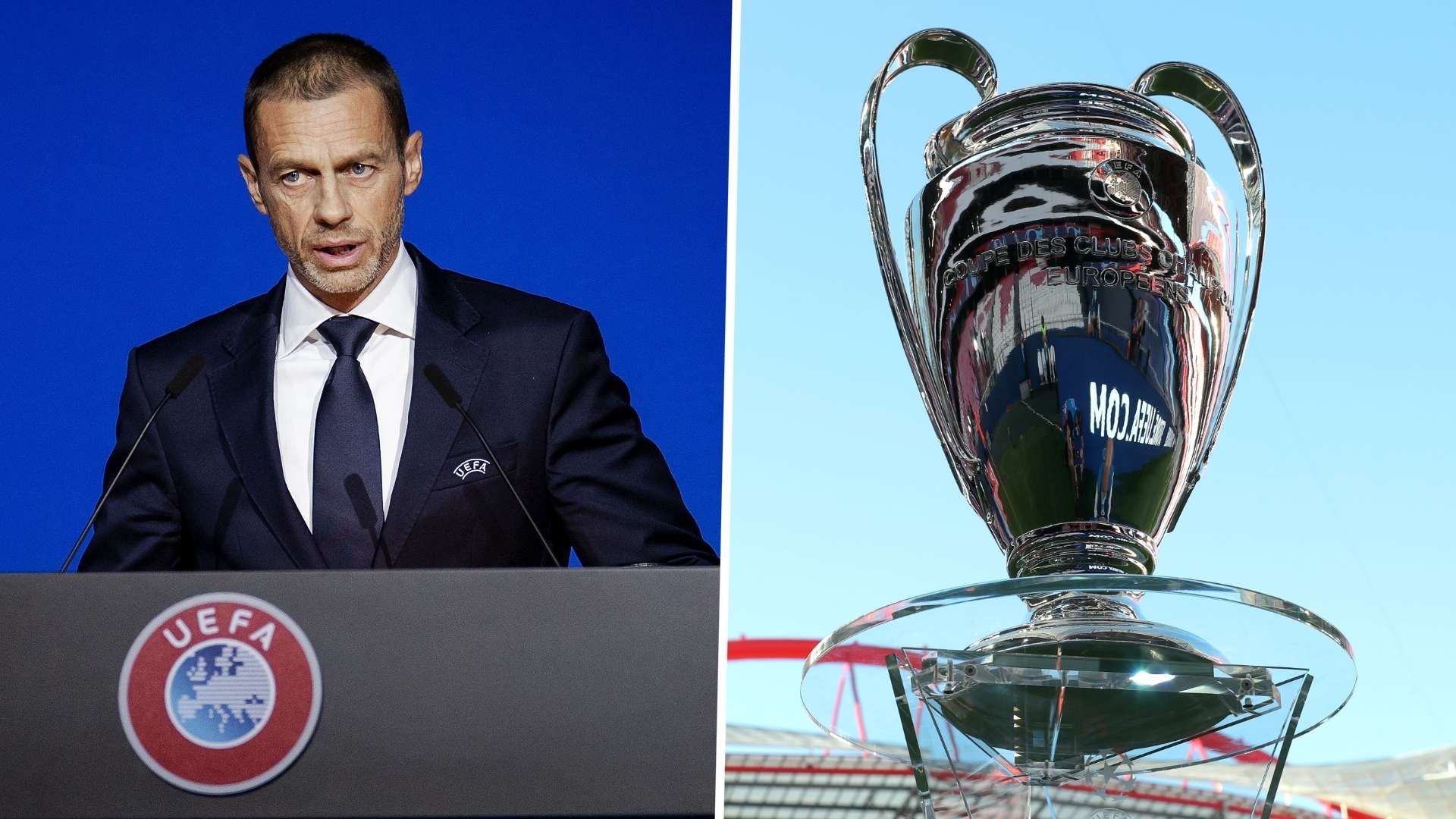Following the announcement of the Super League that involves 12 of Europe's biggest clubs forming a breakaway league, UEFA have announced their own reforms of the existing Champions League.
These changes are not expected to be implemented for another few years, but they are still the most substantial alterations to the Champions League as we know it.
Goal has everything you need to know about the revamped Champions League and more.
Contents
- How many teams will be in the new Champions League?
- When will the Champions League structure change?
- What changes will be made to the existing Champions League format?
- How will the Super League impact the Champions League?
How many teams will be in the new Champions League?
The number of teams will be increased from 32 to 36 in the new Champions League.
When will the Champions League structure change?
The new format is expected to be implemented for the start of the 2024-25 season.
What changes will be made to the existing Champions League format?
Aside from the increase of teams from 32 to 36, the biggest alteration is that the group stage will essentially be axed, replaced with a single league stage that includes all participating teams.
Games will also be played on Thursdays instead of Tuesdays and Wednesdays.
Each participating club will feature in a minimum of 10 league stage games against 10 different opponents (five home games and five away), instead of the usual six matches against the same three teams in the group.
The top eight sides will then automatically qualify for the knockout stage, with the teams finishing in ninth to 24th place facing off in a two-legged play-off fixture in order to progress to the last 16 of the competition.
These changes will also be made for the Europa League (eight matches in the initial league stage), as well as the new Europa Conference League set to begin its inaugural season later in 2021 (six matches in the league stage).
These two lower division competitions will also be expanded to 36 teams in each league stage.
Qualification to the Champions League will more or less be the same, with spots earned through a team's results in their respective domestic leagues.
With the competition being expanded to allow for more teams, the additional spots will be allocated towards the club ranked third in the championships of the fifth-placed UEFA national association rankings.
Another spot will go to a domestic team through "Champions Path" qualification.
The last two spots will go to the clubs who have the highest club coefficient from the past five years that have not managed to qualify for the Champions League group stage, but have managed to qualify for the Champions League qualification phase, Europa League or Europa Conference League.
The Champions League games will still be played in the midweek, as is traditional.
How will the Super League impact the Champions League?
Since the new plans for the Super League involve twelve "founding clubs" who are Champions League mainstays – Arsenal, Chelsea, Liverpool, Man City, Man United, Tottenham, AC Milan, Inter, Juventus, Atletico Madrid, Barcelona, Real Madrid – the Super League would effectively doom the Champions League as we know it.
Without Europe's most elite clubs featuring in the Champions League, the competition would be devoid of its allure, prestige and romance.
Plans for the Super League have been condemned by the majority of the football world including pundits, former players, fans, as well as the likes of UEFA and Premier League.
UEFA president Alexander Ceferin has even threatened to ban individual players from participating in the World Cup and Euros, stating: "We are all united against this nonsense of a project. Cynical plan, completely against what football should be. We cannot and will not allow that to change.
"Players who will play in the teams that might play in the closed league will be banned from the World Cup and Euros. We urge everyone to stand tall with us as we do everything in our power to ensure this never ends up in fruition."
But when asked if the Champions League could continue without the 12 clubs founding the Super League, Ceferin said: "Yes, of course. In Europe, there are many good clubs and devoted fans. You heard the changes already today of the UEFA changes from 2024. We will do it with or without them."
